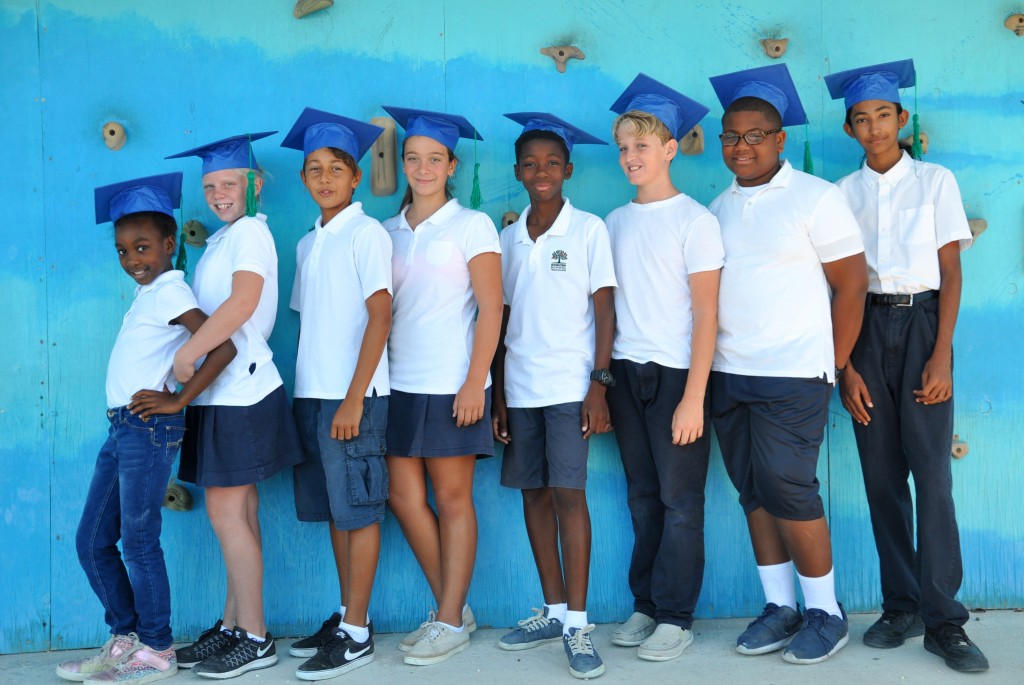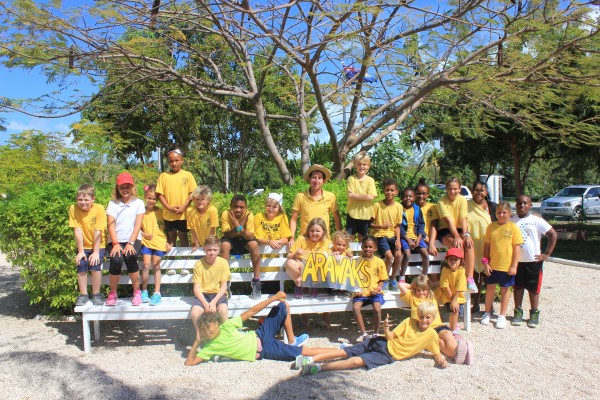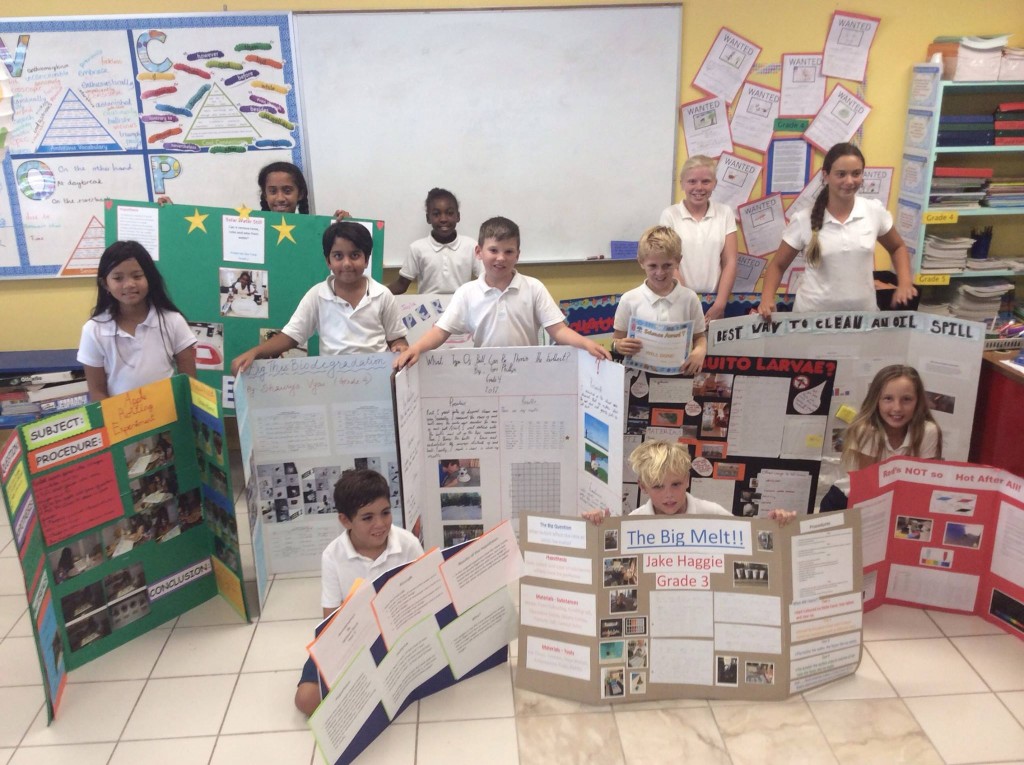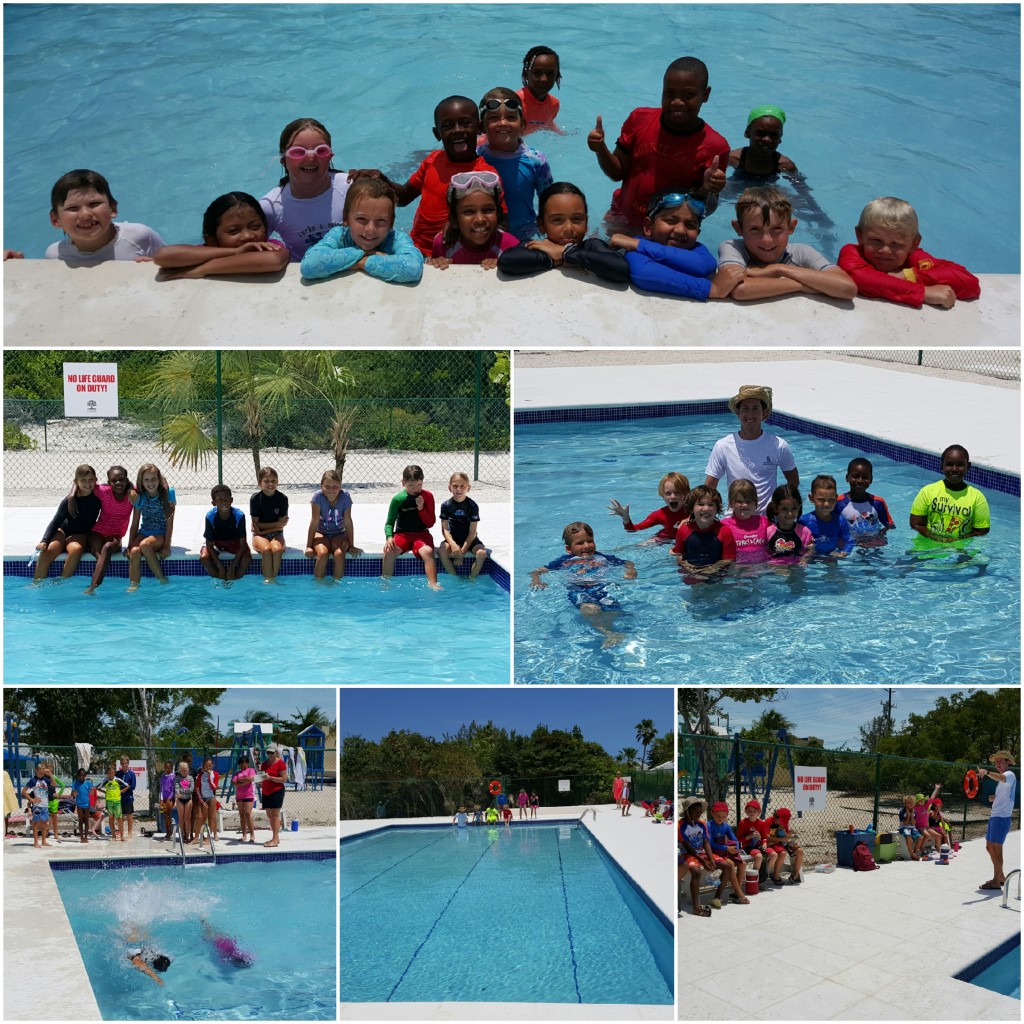The following information provides parents and prospective families with an overview of the curriculum content for Key Stage 2 - Grade 6.
The curriculum is divided into core and foundation subjects as follows:
- Core Subjects: Mathematics, English and Science
- Foundation Subjects: Geography, History, ICT, Art and Design, Design Technology, Physical Education, Music, Spanish, French, Drama and Citizenship
From time to time this content will see a process of appraisal and update. In line with a ‘Creative Curriculum’, a topic based approach to learning is developed, where cross curricular themes are integrated to enable relevance.
Children are given the tools to be an integral part of the learning process and the confidence to perform successfully beyond The International School of the Turks and Caicos Islands.
English - Key Stage 2 Curriculum
Find out what your child will be taught in Grade 6 English and support their learning at home so they feel confident in their skills, ready for the move to our Middle School or other secondary school.
This year, the children will be working on stories, poetry and non-fiction and concentrating on one or more of the following areas:
- Different genres
- Significant authors
- Short stories with flashbacks
- Biography and autobiography
- Journalism
- Persuasive writing
- Poetic imagery
Reading in Grade 6
Most children in Grade 6 will be confident readers, so the emphasis is very much on comprehension and interpretation. Teachers are encouraging children to read a wide range of material, and develop their own reading tastes. For children who are still struggling, support should be in place, and it’s important that they still be encouraged to enjoy books through hearing them read aloud. Your child may be expected to keep a reading journal, making a note of the books they read, and their comments, or they could take part in a reading group.
Speaking and Listening in Grade 6
Drama, performance and group discussions are all used to develop communication skills and support reading and writing. The children will be working with scripts, improvising their own plays, and working in groups to produce work or debate issues.
Writing in Grade 6
Grade 6 children are usually confident writers, able to express their ideas imaginatively and clearly, whether they are working on fiction, non-fiction or poetry.
Maths - Key Stage 2 Curriculum
Your child might be becoming quite the whiz with numbers by now. Find out how their maths knowledge will be developed in Grade 6. Grade 6 maths will include new work and revision of earlier topics.
Children should be working on three-step problems now, using addition, subtraction, multiplication and division. They are encouraged to work independently, deciding themselves on the best method of solving a problem, and then estimating their results and checking to see if they are correct. Revision will help to prepare them for KS2 SATs and secondary school – if they do not have a grasp of certain mathematical methods now, children struggle to move on to the next step.
Maths is taught through mental, practical and written lessons, and where possible, the children are shown how it links to other areas of the curriculum, such as science or ICT, as well as everyday life.
Topics covered include:
- Counting, partitioning and calculating
- Measuring
- Shapes
- Data Handling
Science - Key Stage 2 Curriculum
This is the final year of the Key Stage 2 science curriculum and the main areas are still:
- Life processes and living things
- Materials and their properties
- Physical processes
Grade 6 will be studying topics from the list above, possibly for the first time. However, they may also be returning to a topic to study it in greater detail, or as revision in preparation for testing. Science is a practical subject so the children will learn about health and safety risks as they conduct experiments, and there is also a focus on developing their skills of ‘scientific enquiry’.
The Grade 6 Foundation Subjects are: Geography, History, ICT, Art and Design, Design Technology, Physical Education, Music, Spanish, French, Drama and Citizenship.
Great consideration is given to our regional needs within teacher planning and all children are encouraged to understand how our locality relates to the rest of the world, thinking and enquiring as future world citizens.
Children are encouraged to develop self-motivation and encouraged to capture ‘Excellence and Enjoyment’.
It is our team goal to provide inspiration and a meaningful approach to learning. We are particularly driven to focus on local and global issues and the International communities that we serve, adapting the curriculum to meet these needs in a holistic way.






